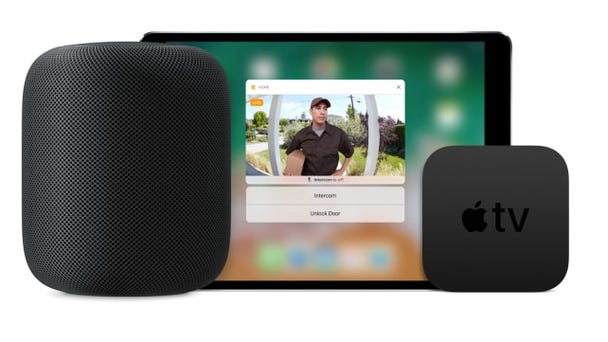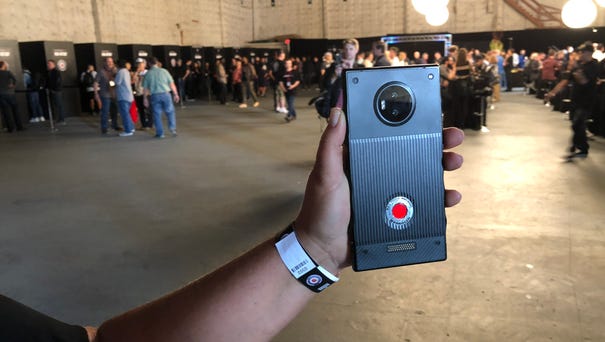| More people were using smart speakers to make calls. Then came the story of one Portland family's eavesdropping Alexa |
| It was every Amazon Echo owner's nightmare. Alexa, the connected speaker, really, truly, was listening in on your conservations, and behind your back, passed on the recording of a private chit-chat to someone on your Echo contact list. |
 |
| This actually happened this week, according to Seattle TV station KIRO, which told the story of a Portland woman's privacy gone amuck. |
| Amazon has tried to counter worries about "always listening" devices by reminding us that the Echo only kicks into action when it hears the wake word Alexa. Ditto for Google and the Google Home connected speaker. The glitch for the Portland family, according to Amazon, is that Alexa heard the wake word, then a series of commands — none of which the family member intentionally made. |
| This also happened to be the week that new privacy rules went into effect in Europe, and our e-mail inboxes were flooded with privacy policy updates form websites, apps and newsletters, outlining exactly how they are now using our information. Even though the rules are only enforceable for European residents, Americans stand to benefit because it's just too onerous for most tech companies to have different sets of standards. |
| So if for a moment you felt a little better about your personal information in the hands of the big tech companies — along comes an eavesdropping Alexa. |
| If you're concerned about this scenario, there's a simple solution. Don't set up the Echo speaker to make calls, which is what the Portland woman did. |
| The feature lets you make Alexa to Alexa calls via the speaker or app, and call landlines and mobile phone numbers that are in the contacts of your mobile phone. |
| Google has a similar calling feature that also works by setting up calls in the Google Home smartphone app. |
| Most people play music and ask about the weather with their smart speakers, but Bret Kinsella, the publisher of the voicebot.ai blog, says making calls is growing in popularity. |
| He polled 1,000 people in January, and found that 41% have tried calling and messaging with their speakers, 29% use it monthly, and 10% daily. |
| "That's pretty popular, compared to a lot of things," he says. |
| And for those with the Apple HomePod, the latest of the new connected speakers, yes, you can use the Siri personal assistant to voice command music selections and get questions answered. But you can't make outgoing calls, but instead transfer calls from an iPhone to the Apple speaker and use it as a speaker phone. |
| Just don't say Alexa during your call and wake up the Echo speaker. |
| In other tech news this week |
| —YouTube launched a revamped music service highlighted with a really cool feature it's competitors don't have: non-stop music mixes. But often the algorithm gets stuck and plays the same artists over and over again. That said, no music service has as extensive a collection of songs. I weigh in here, and also compare YouTube's offerings to the big 3 —Spotify, Apple Music and Amazon. |
| —New privacy rules went into effect in Europe, and as a result, your inbox has been flooded with privacy policy updates. The upshot: the new rules call for easier-to- understand policies, and more permission to use our data. |
| —Samsung owes Apple $539 million in damages per a long-standing patent dispute. |
| —Siri offered USA TODAY, CNET, Gizmodo and others hints about how it would be new and improved at the upcoming WWDC Apple developer conference in June. And we fell for it. Only one problem —those hints were from 2017. Apple hadn't gotten around to updating them. Until after our piece ran. |
| This week's Talking Tech podcasts |
| —Photographer Pete Halvorsen tells how to master Instagram success |
| —Preview: RED's crazy new Hydrogen holographic 4D smartphone. |
| —First take: YouTube Music's new subscription service. |
| —That Siri preview of Apple's Developer Conference. |
| —Music service smackdown. Rating the Big 3 and the new kid on the block, Spotify, Apple Music, Amazon and YouTube. |
| —Save money on hotel rooms and delayed flights with Service. Michael Schneider, the founder of the money-saving app, tells how to get money back from hotels and airlines with Service. |
| —The Cashless society is coming. Jeremy Allaire, the founder of the Circle Pay app, offers his predictions on when we'll no longer carry any green with us. |
| —How the Russians kept trying to play havoc with U.S. policy even after Donald Trump's 2016 election on Facebook. USA TODAY Tech Editor Laura Mandaro explains. |
| Thanks for reading the Talking Tech newsletter. New updates every Saturday. If you haven't subscribed yet, follow this link and join the party! You can listen to the daily Talking Tech podcast on Apple Podcasts, Stitcher and Spotify and follow me on Twitter, Instagram and YouTube. |









No comments:
Post a Comment